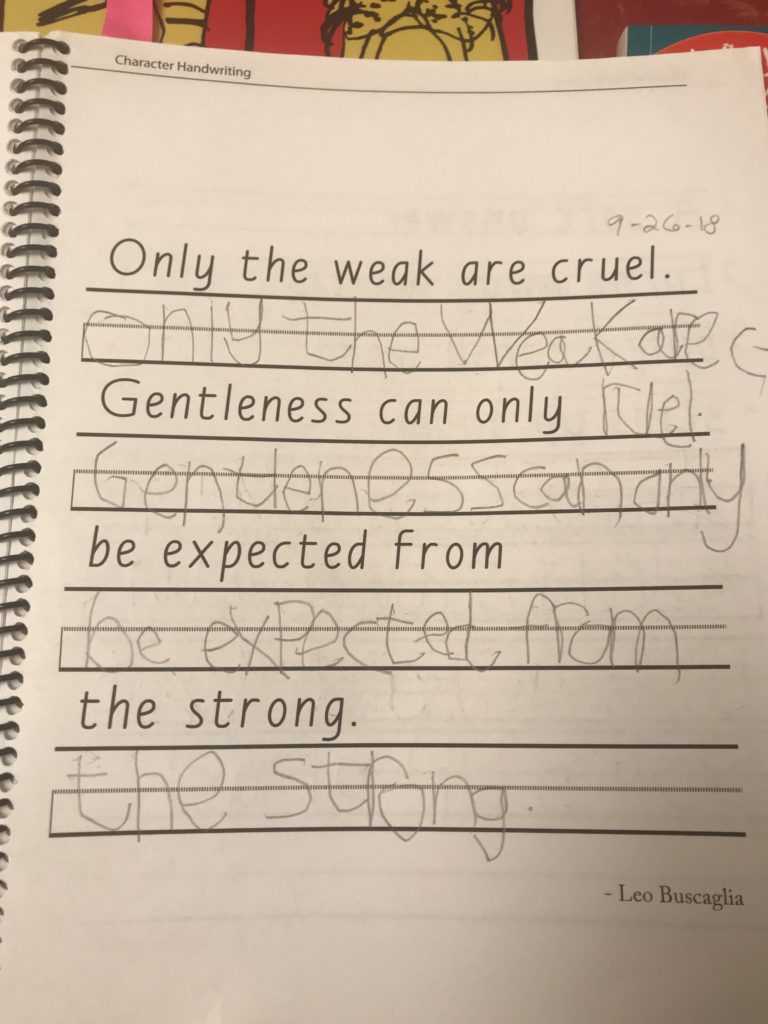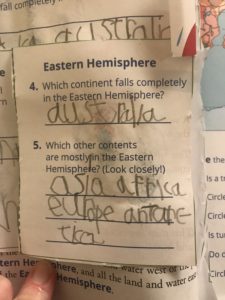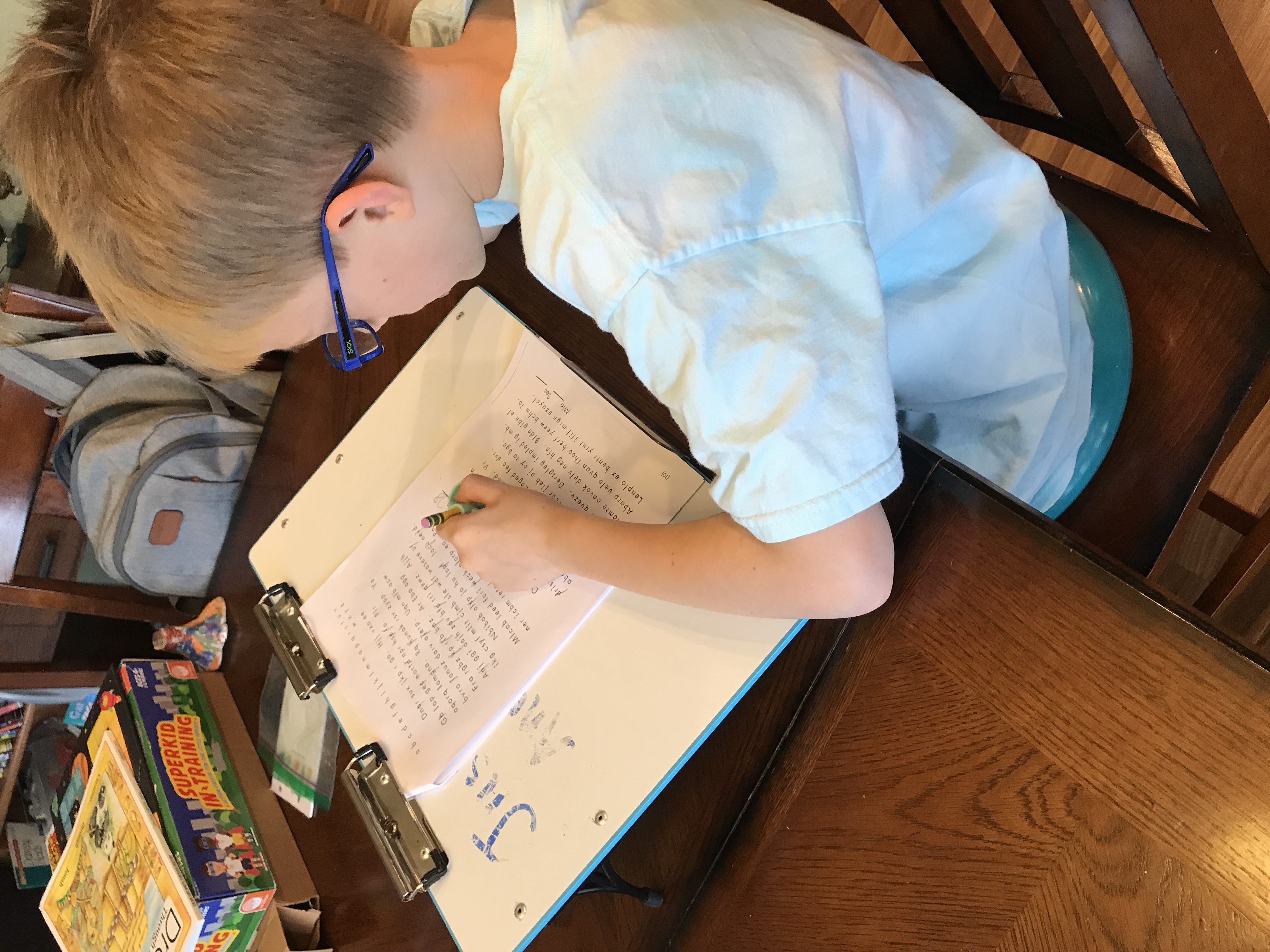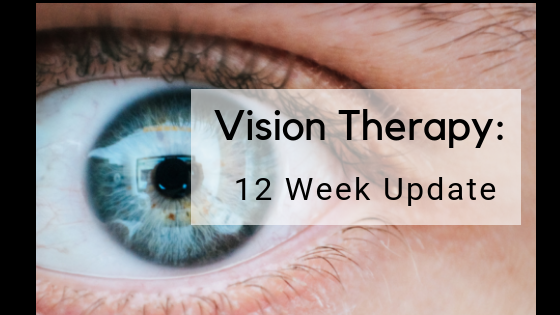This blog post contains affiliate links and any purchases made through such links will result in a small commission for me (at no extra cost to you).
Dyspraxia or Vision Issues?
We took the plunge and began Vision Therapy for Joe, our 8-year-old, in the fall. It had been recommended by both a neuropsychologist who did an extensive evaluation on him and it was also recommended by his occupational therapist. He has had difficulty catching and kicking a ball for his whole life (and other activities that require coordination). These difficulties certainly go hand in hand with his dyspraxia. But we have often wondered, how much of his dyspraxia is related to his vision?
We held off for a while due to the likelihood of insurance not covering it (that proved to be TRUE, though the evaluations are covered). We spent big bucks on Brain Balance when Joe was four, and it’s honestly just hard to continue to pay for things that are not covered by insurance. Though when they truly help, it IS worth it!
Exam Results
Following his very first evaluation done by The Vision Therapy Center, it was determined he has Convergence Insufficiency, a very common diagnosis. They gave us a script to get glasses with a prism and made from a special material. These glasses almost immediately helped with his ability to catch a ball – pretty amazing to witness!
After that initial first exam and one other exam they did, they gave us the results. Joe had deficiencies in his visual processing related to FOCUSING, TEAMING, and TRACKING. He also has some retained primitive reflexes, which they work to integrate as part of his therapy plan.
We do about 20 minutes of exercises at home 5 days a week and go the center for therapy once a week. He will finish in summer after 36 weeks of therapy.
Improvements We’ve Seen
We are happy with the results so far. These are some of the positive things we’ve seen, along with the improved ball catching:
Reading faster (Joe was already reading well, he is just able to read faster now!)
Fewer headaches
Interest in puzzles (in the past he was not interested in doing them)
Slightly better short-term memory – we notice this in his ability to complete tasks.
Improved handwriting. There was lots of room for improvement here, as academically, this is Joe’s weakest area. However, the improvement is noticeable which is quite exciting for us, and more importantly, for Joe! See the captions for the dates of when these handwriting samples were taken. The biggest improvement is his ability to write smaller, which is seen especially on the last sample from today (though you may not be able to tell from the picture!)



Handwriting Aids
We have also started using this slant board per the advice of the optometrists at the center, to reduce fatigue when handwriting.
 And while we’re talking about handwriting, these pencil grips are amazing. Joe just got them for Christmas and tried them out and whoa! So comfortable and easy to use. I have a poor pencil grip myself and these felt very natural to use.
And while we’re talking about handwriting, these pencil grips are amazing. Joe just got them for Christmas and tried them out and whoa! So comfortable and easy to use. I have a poor pencil grip myself and these felt very natural to use.
ETA: Here is a post with results after 36 weeks of vision therapy were completed.
If you’re curious or want to know more about vision therapy, in general, I highly recommend the group on Facebook “Vision Therapy Parents Unite”. Or if you just want to learn more about Vision Therapy you can check out this website.





My 17 year old has short term memory. He’s had an IEP since he was tested in elementary school. I feel he might have dyspraxia because he can’t comprehend how to tie shoes, count $ , figure out the difference in coins, tell time, etc. Gets nervous about trying new things. Is an introvert except with a select few,yes he has friends but never gets invited to do things and only a few come to his birthdays. I’ve never heard of dyspraxia until today. I just always thought his delays were due to his short term memory. He’s scared to death to be out of school next year and I’m not even sure what kind of career or job to suggest to him. He’s in driver’s Ed at school but doesn’t want to drive. He could have been driving at the age of 15 with a licensed driver and 16 by himself. As far as motor skills he’s great at video games,he can make a hoop in basketball, he can catch and throw a ball. He also has club foot and is overweight and his father’s side are all big, which I always thought that’s why he didn’t do sports. Now I’m wondering. Like I said he’s a gray area with wondering if he might have dyspraxia or not.
It’s so hard to know what’s going on with our kids sometimes. And oftentimes, kids can be misdiagnosed, which obviously doesn’t help! (not saying that’s what happened with you, but that it does happen) If you’re on FB, you might want to consider looking into the Vision Therapy Parents Unite group. There’s a wealth of information there. Or it might be worth considering a full neuro-psych evaluation to get a big picture of your son’s strengths and weaknesses. That gave us so much information and helped us know how to move forward. But with the short term memory being his significant issue, a simple Vision Therapy evaluation might be the easiest thing to do. I know short-term memory often is associated with visual processing issues (not the same as visual acuity). I wish you the best!